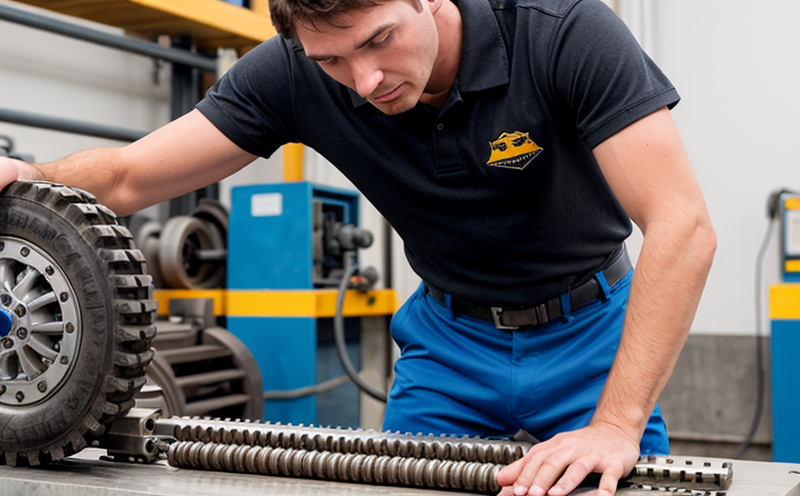Mechanical Equipment Certification: Ensuring Safety and Efficiency in Industrial Operations
In todays fast-paced industrial world, mechanical equipment plays a crucial role in maintaining production levels, ensuring safety, and meeting regulatory requirements. With the increasing complexity of machinery and the growing demand for high-performance equipment, certification has become an essential aspect of manufacturing operations. In this article, we will delve into the importance of mechanical equipment certification, its benefits, and the process involved.
What is Mechanical Equipment Certification?
Mechanical equipment certification involves the evaluation and validation of a machines performance, safety features, and compliance with industry standards and regulations. The primary purpose of certification is to ensure that machinery meets the required specifications, operates efficiently, and minimizes risks associated with its use. This process typically involves an independent third-party inspection or testing agency conducting a thorough examination of the equipment.
Benefits of Mechanical Equipment Certification
Certification has numerous benefits for manufacturers, end-users, and regulatory bodies:
Enhanced Safety: Certified machinery is less likely to cause accidents or injuries due to faulty design or malfunctioning parts.
Improved Efficiency: Certified equipment operates within specified parameters, ensuring optimal performance and minimizing downtime.
Compliance with Regulations: Certification helps manufacturers meet industry standards and government regulations, reducing the risk of fines or penalties.
Increased Credibility: Companies that invest in certification demonstrate their commitment to quality and safety, enhancing their reputation among customers and stakeholders.
Reduced Liability: Certified equipment reduces the liability associated with machinery-related incidents, protecting companies from costly lawsuits.
Key Aspects of Mechanical Equipment Certification
Here are some essential aspects to consider when obtaining certification for your mechanical equipment:
Type Testing: Manufacturers may conduct type testing on a representative sample of their products to ensure compliance with industry standards.
Inspection and Verification: Independent third-party inspectors verify the performance and safety features of certified equipment during regular inspections or audits.
Maintenance and Repair Records: Companies must maintain accurate records of maintenance, repairs, and calibrations performed on certified machinery.
Certification Processes
Several certification processes are available for mechanical equipment, including:
1.
UL Certification (Underwriters Laboratories): UL certification involves a rigorous testing process to ensure that products meet safety standards.
2.
EASA Certification (Electrical Apparatus Service Association): EASA certification focuses on electrical and mechanical equipment, with an emphasis on safety features and performance.
3.
ISO Certification (International Organization for Standardization): ISO certification involves meeting international standards for quality management systems and product development.
Certification Agencies
Reputable certification agencies include:
Underwriters Laboratories (UL)
Electrical Apparatus Service Association (EASA)
Intertek
SGS
Bureau Veritas
Commonly Certified Equipment
Mechanical equipment commonly certified includes:
Industrial motors
Generators
Pumps
Compressors
Conveyor systems
Certification ensures that these machines operate efficiently and safely, reducing the risk of accidents or equipment failures.
QA: Additional Information on Mechanical Equipment Certification
Q1: What is the main purpose of mechanical equipment certification?
The primary goal of mechanical equipment certification is to ensure that machinery meets industry standards, operates efficiently, and minimizes risks associated with its use. This process involves an independent third-party inspection or testing agency conducting a thorough examination of the equipment.
Q2: How often should certified equipment be inspected?
Certified equipment should undergo regular inspections (typically every 1-5 years) to ensure that it continues to meet industry standards and regulatory requirements. The frequency of inspections depends on factors like usage, maintenance history, and equipment type.
Q3: Can I perform certification internally or do I need an external agency?
While internal testing can be performed, external agencies like UL, EASA, or ISO provide unbiased assessments and help maintain the credibility of your certification process. External agencies also ensure that you adhere to industry standards and regulatory requirements.
Q4: What are the costs associated with mechanical equipment certification?
The cost of certification varies depending on factors such as equipment type, complexity, and testing frequency. Typical costs range from a few hundred dollars for simple testing to tens of thousands of dollars for complex or specialized equipment.
Q5: How long is the certification process typically?
Certification processes can take anywhere from a few weeks to several months or even years, depending on the scope and complexity of the assessment. Factors like equipment availability, inspector schedules, and testing requirements also influence the duration.
Q6: Do I need to obtain certification for all my mechanical equipment?
Not necessarily. Certification is usually required for critical equipment that has significant safety implications or affects production efficiency significantly. Non-critical equipment may not require certification, but its essential to consult industry standards and regulations for specific guidelines.
Q7: What are the consequences of non-compliance with certification requirements?
Non-compliance with certification requirements can result in fines, penalties, and damage to your companys reputation. In severe cases, equipment failure or accidents may lead to costly lawsuits and even business closure.
Conclusion
Mechanical equipment certification is a vital aspect of industrial operations that ensures safety, efficiency, and compliance with industry standards and regulations. By understanding the benefits, key aspects, and processes involved in certification, manufacturers can make informed decisions about their equipment and protect themselves from potential risks.

































